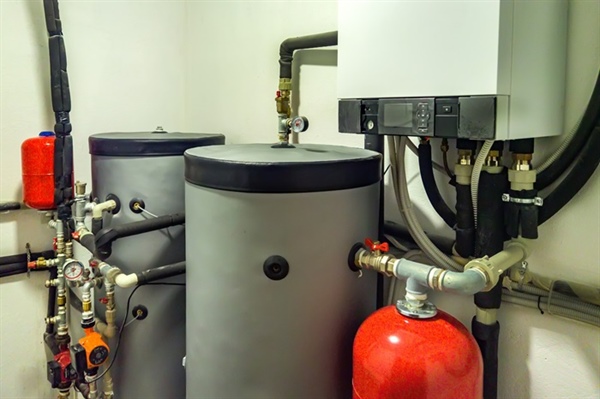When Your Water Heater Turns Cold: Troubleshooting Tips & Solutions

Water heaters are essential to modern comfort, providing reliable hot water for showers, cooking, and cleaning. However, when issues arise, it’s important to understand the potential causes and solutions to restore its functionality efficiently.
In this guide, we’ll explore common causes of water heater issues, troubleshooting steps for a water heater that isn’t heating, signs it’s time to consider replacement, and essential maintenance tips to extend its life.
Whether you’re facing a sudden lack of hot water or looking to prevent future issues, these insights can help keep your water heater performing optimally!
Common Causes of Water Heater Issues
Water heater problems can stem from various sources, often related to wear and tear or specific component failures.
One common cause is sediment buildup, which occurs as minerals in the water accumulate at the tank’s bottom over time. This buildup can reduce efficiency and even damage the heating element if left unchecked.
Another frequent issue is a faulty thermostat, which may result in inconsistent water temperatures.
Additionally, older units may experience corrosion, leading to leaks and eventual system failure.
Electrical problems are another common cause of heating issues in electric water heaters, while gas units may face issues related to pilot lights or gas control valves.
Understanding these causes is the first step in identifying the appropriate solution for restoring your hot water.
How to Troubleshoot a Water Heater That Isn’t Heating
If your water heater isn’t heating, a systematic troubleshooting approach can help pinpoint the issue.
Start by checking the power supply; for electric water heaters, ensure the circuit breaker hasn’t tripped. In gas heaters, verify that the pilot light is lit and the gas supply is uninterrupted.
For both types, checking the thermostat settings can reveal if a simple adjustment is needed to restore proper heating.
If these steps don’t resolve the issue, inspect for sediment buildup by draining the tank partially to see if there are visible deposits. Sediment can act as an insulator, causing the water heater to work harder to heat water.
For complex issues like heating element failure or gas valve malfunction, contacting a professional can be the best course of action, especially for safety concerns.
When Should I Consider Replacing My Water Heater?
While regular maintenance can extend a water heater’s life, most units have a typical lifespan of 10 to 15 years.
Signs it may be time for a replacement include frequent repairs, decreased efficiency, or noticeable corrosion and leaks in the tank. Older models tend to be less energy-efficient, so an upgrade could also save on utility bills.
If the water heater is nearing the end of its expected life, replacing it with a new, energy-efficient model can be a better investment than continuing repairs.
Today’s models offer advanced features, including faster heating times, better energy efficiency, and eco-friendly options. Consult with a professional if you’re unsure about the condition of your current unit or if you’d like recommendations on energy-efficient replacements suited to your needs.
Maintenance Tips to Prevent Water Heater Problems
Consistent maintenance can greatly reduce the risk of water heater issues. Here are some maintenance best practices:
- Drain the tank every six to twelve months to remove sediment buildup, which improves efficiency and extends the unit’s life.
- Regularly testing the temperature and pressure relief (TPR) valve can also prevent pressure build-up inside the tank, ensuring safe operation.
- Checking and adjusting the thermostat settings can help avoid overheating and reduce energy costs.
- For electric water heaters, inspect the heating elements periodically for signs of wear or mineral buildup.
These steps can reduce the likelihood of unexpected breakdowns and maintain optimal water heater performance.
How to Extend the Life of Your Water Heater
Extending your water heater’s life involves proactive steps and routine care. Insulating the water heater tank and pipes is an effective way to improve efficiency and reduce heat loss, especially in colder climates. This can reduce strain on the heating elements and contribute to a longer lifespan.
Installing a water softener if your area has hard water can also be beneficial, as it reduces mineral buildup within the tank. Periodically replacing the anode rod, which helps prevent corrosion, is another preventive measure that can add years to your water heater’s life.
For Water Heater Repairs, Turn to Our Experts
If your water heater is still giving you problems, even after trying these troubleshooting measures, it's time to call the most trusted team in town--Modern Plumbing & Heating. With decades of combined experience and a master plumber on site, our plumbers can tackle any water heater issue you've got!
Our responsive pros offer same-day or next-day service and have experience with all types of water heater brands. Our techs will always try to repair first before recommending a replacement, so you can get the most out of your water heater.
If you’re interested in personalized advice or services to maximize the longevity of your water heater, contact us at Modern Plumbing & Heating!